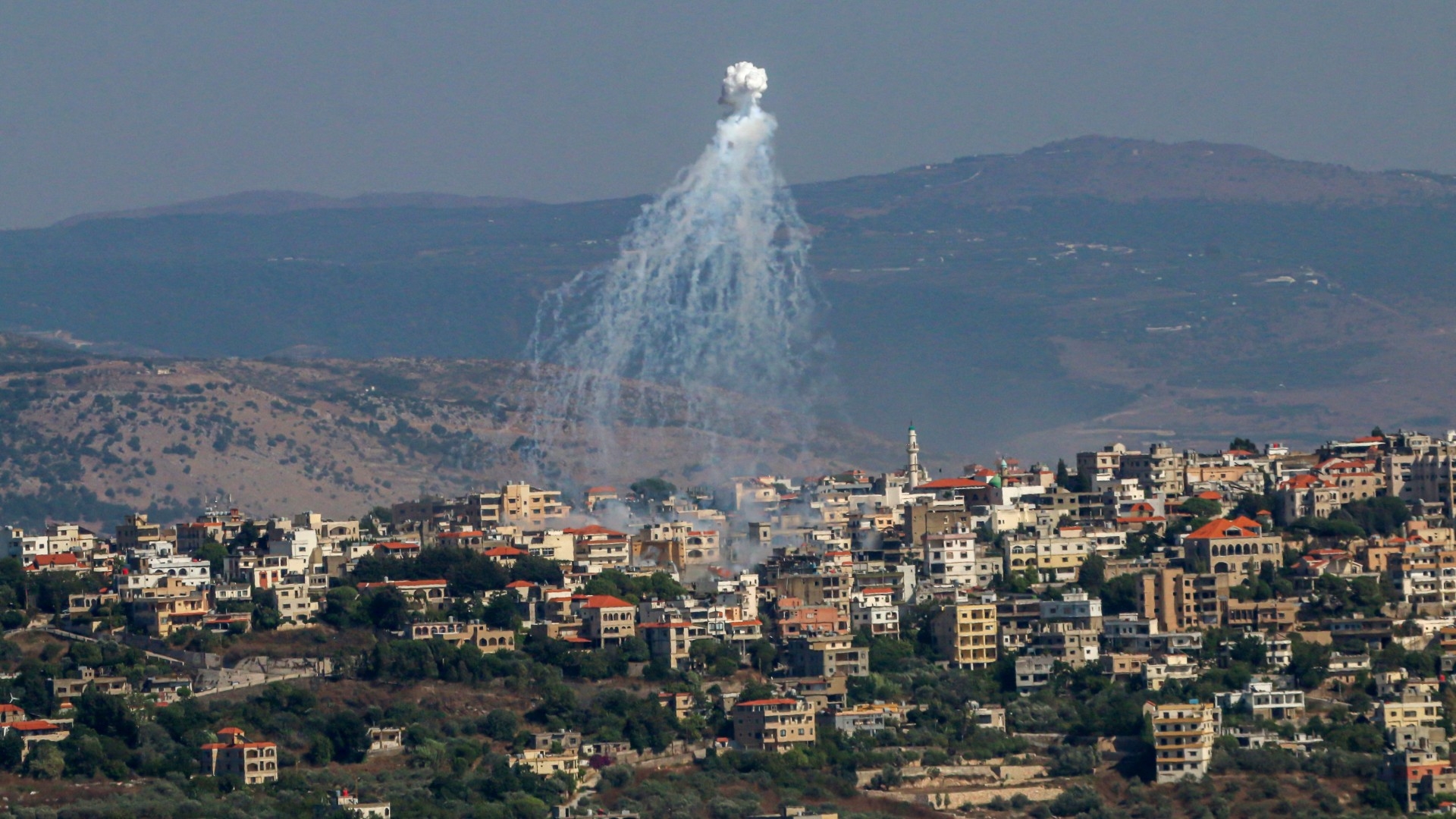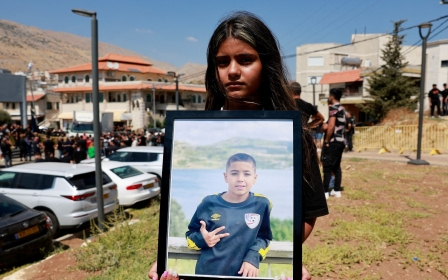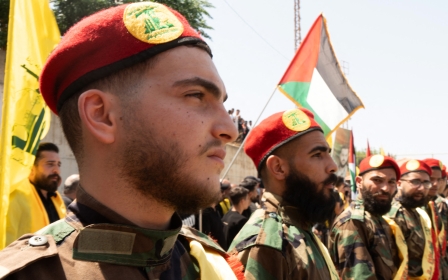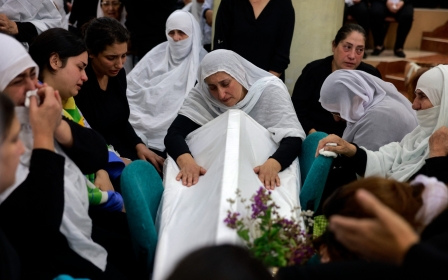US warns Hezbollah about 'big strikes' in east and south, but no wider offensive

The Biden administration has informed Hezbollah through Lebanese mediators that Israel plans to conduct “big strikes” in the east and south of Lebanon in retaliation for an attack in the Israeli-occupied Golan Heights, but will stop well short of a major offensive.
A senior Arab official briefed on the matter told Middle East Eye that the warnings have been delivered to avert a “full-fledged” war with Lebanon, potentially so Hezbollah could move senior commanders out of the area.
Late on Tuesday, a large explosion ripped through a suburb south of Beirut considered a stronghold of Hezbollah. The Israeli military said the strike on Dahiyeh targeted a senior Hezbollah commander.
Those backchannel promises could explain why US officials have publicly shrugged off concerns about a war breaking out between the Iran-backed group and Israel and calling them “exaggerated”.
“Based on the conversations that we’ve been having, we don’t believe that this needs to result in an escalation of a broader war. There’s no reason for that outcome to occur,” White House spokesman John Kirby told reporters on Monday.
New MEE newsletter: Jerusalem Dispatch
Sign up to get the latest insights and analysis on Israel-Palestine, alongside Turkey Unpacked and other MEE newsletters
Hezbollah and Israel have exchanged near-daily fire since the Hamas-led 7 October attacks on southern Israel, with the Iran-backed Lebanese group firing rockets at Israel in what it says is in solidarity with besieged Palestinians in Gaza.
Tensions have been running particularly high this summer but escalated on Saturday after Israel and the US blamed Hezbollah for a rocket attack on a Druze village in the occupied Golan heights that killed 12 children and teenagers.
Israeli Prime Minister Benjamin Netanyahu said that Israel’s response to the attack would be “severe”.
Israel’s military said on Tuesday that it had struck 10 targets linked to the Iran-backed group in at least seven different areas of south Lebanon overnight.
The White House and State Department did not respond to MEE's request for comment by the time of publication.
Choreographed containment
Israeli officials and analysts say that their western counterparts underestimate the pressure Israel’s government is under to push Hezbollah back from its border to allow the 90,000 Israelis displaced from their homes to return north.
In June, MEE reported that the US warned Hezbollah it would back an Israeli offensive against it if the group continued to link ending its attacks to Hamas and Israel with reaching a broader ceasefire in the Gaza Strip.
But some US defence and intelligence officials say Israel may not be able to support a major offensive. “Israel does not have the troops in place to launch a ground offensive against Hezbollah,” a US official speaking on the condition of anonymity told MEE.
Despite the cross-border fire, Hezbollah and Israel have abided by rules of engagement to try and contain the conflict, analysts and diplomats say.
While Israel has targeted Hezbollah commanders, it has stopped short of striking Hezbollah officials in Beirut. Likewise, Hezbollah has conducted daring drone flights over military bases deep inside Israel but has limited its strikes to the north of the country.
'The Biden administration is piling pressure and certainly trying to choreograph this'
- Firas Maksad, MEI
The Arab official, who has been briefed on the matter, told MEE that the US has informed Lebanese mediators it does not expect Israel to launch any type of ground offensive - including commando raids - into southern Lebanon.
The US has also told Lebanese officials that it does not expect Israel to target Beirut, but Israel admitted to targeting a suburb just south of Beirut on Tuesday despite the diplomatic effort.
“If they (Israel) avoid civilians and they avoid Beirut and its suburbs, then their attack could be well calculated," Lebanon's deputy parliament speaker Elias Bou Saab told Reuters on Monday. Bou Saab speaks regularly with US envoy Amos Hochstein and has been an interlocutor between Hezbollah and the US.
"We're continuing to work toward a diplomatic resolution that would allow Israeli and Lebanese civilians to return to their homes and live in peace and security. We certainly want to avoid any kind of escalation," deputy State Department spokesman Vedant Patel told a briefing shortly after the attack on Tuesday.
The US considers Hezbollah a terrorist organisation and relies on Lebanese officials including Prime Minister Najib Mikati and speaker of parliament Nabih Berri to pass messages to Hezbollah.
“The Biden administration is piling pressure and certainly trying to choreograph this in a way reminiscent of the Iran-Israel exchange in April,” Firas Maksad, a senior fellow at the Washington-based Middle East Institute think tank, told MEE.
Since 7 October, the Middle East has been on the precipice of regional war, only to pull back. In April, Iran launched an unprecedented but highly choreographed direct attack on Israel with missiles and drones in retaliation for an Israeli strike on its consulate in Damascus.
Israel responded to that attack with a limited strike on the Iranian city of Isfahan.
Middle East Eye delivers independent and unrivalled coverage and analysis of the Middle East, North Africa and beyond. To learn more about republishing this content and the associated fees, please fill out this form. More about MEE can be found here.




